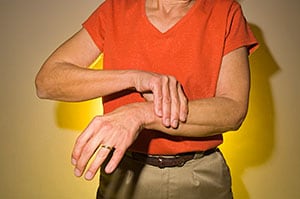Key points
- Most children and adults who get rubella usually have mild illness with a rash starting on the face.
- Up to 70% of women who get rubella may experience arthritis.
- The most serious complication from rubella infection is the harm it can cause a developing baby.

Signs and symptoms
Rubella is usually mild, with few noticeable symptoms.
In children
For children who do have symptoms, a red rash is typically the first sign. The rash generally first appears on the face and then spreads to the rest of the body, lasting about 3 days.
Other symptoms that may occur 1 to 5 days before the rash appears include:
- Low-grade fever
- Headache
- Mild pink eye (redness or swelling of the white of the eye)
- General discomfort
- Swollen and enlarged lymph nodes
- Cough
- Runny nose
In adults
Most adults who get rubella usually have a mild illness, with:
- Low-grade fever
- Sore throat
- A rash that starts on the face and spreads to the rest of the body
Some adults may also have a headache, pink eye, and general discomfort before the rash appears.
Complications
Up to 70% of women who get rubella may experience arthritis. This is rare in children and men.
In rare cases, rubella can cause serious problems, including brain infections and bleeding problems.

In pregnant women and newborns
The most serious complication from rubella infection is the harm it can cause a developing baby. This can happen in the womb and after birth.
If an unvaccinated person gets infected with rubella during pregnancy they can have a miscarriage; or the baby can die just after birth. They can pass the virus to the developing baby who can develop serious birth defects, such as:
- Heart problems
- Loss of hearing and eyesight
- Intellectual disability
- Liver or spleen damage
Serious birth defects are more common if a woman is infected early in her pregnancy, especially in the first trimester. These severe birth defects are known as congenital rubella syndrome (CRS).
